Reading AI-generated Speculative Futures in a Digital Visual Age
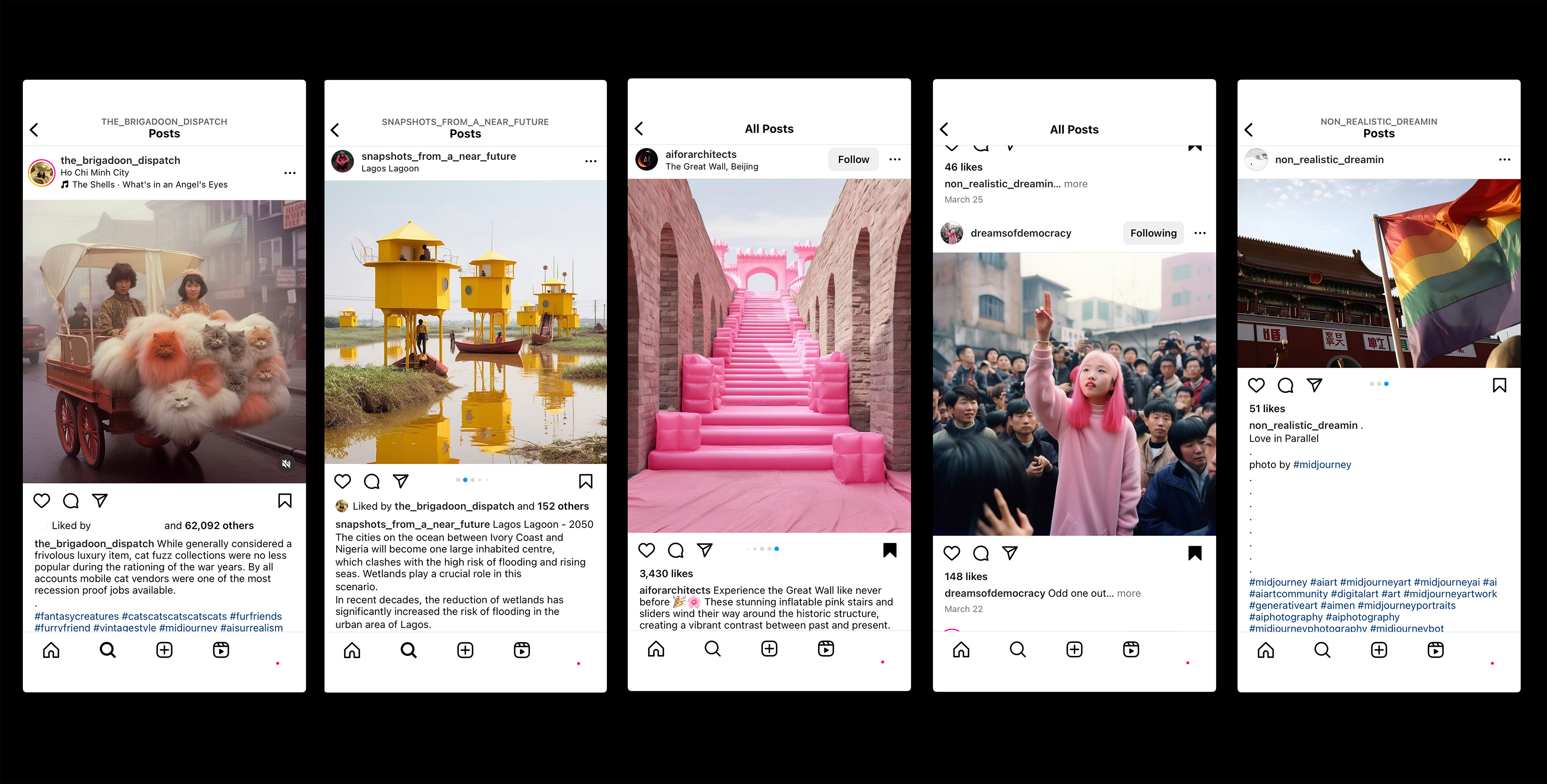
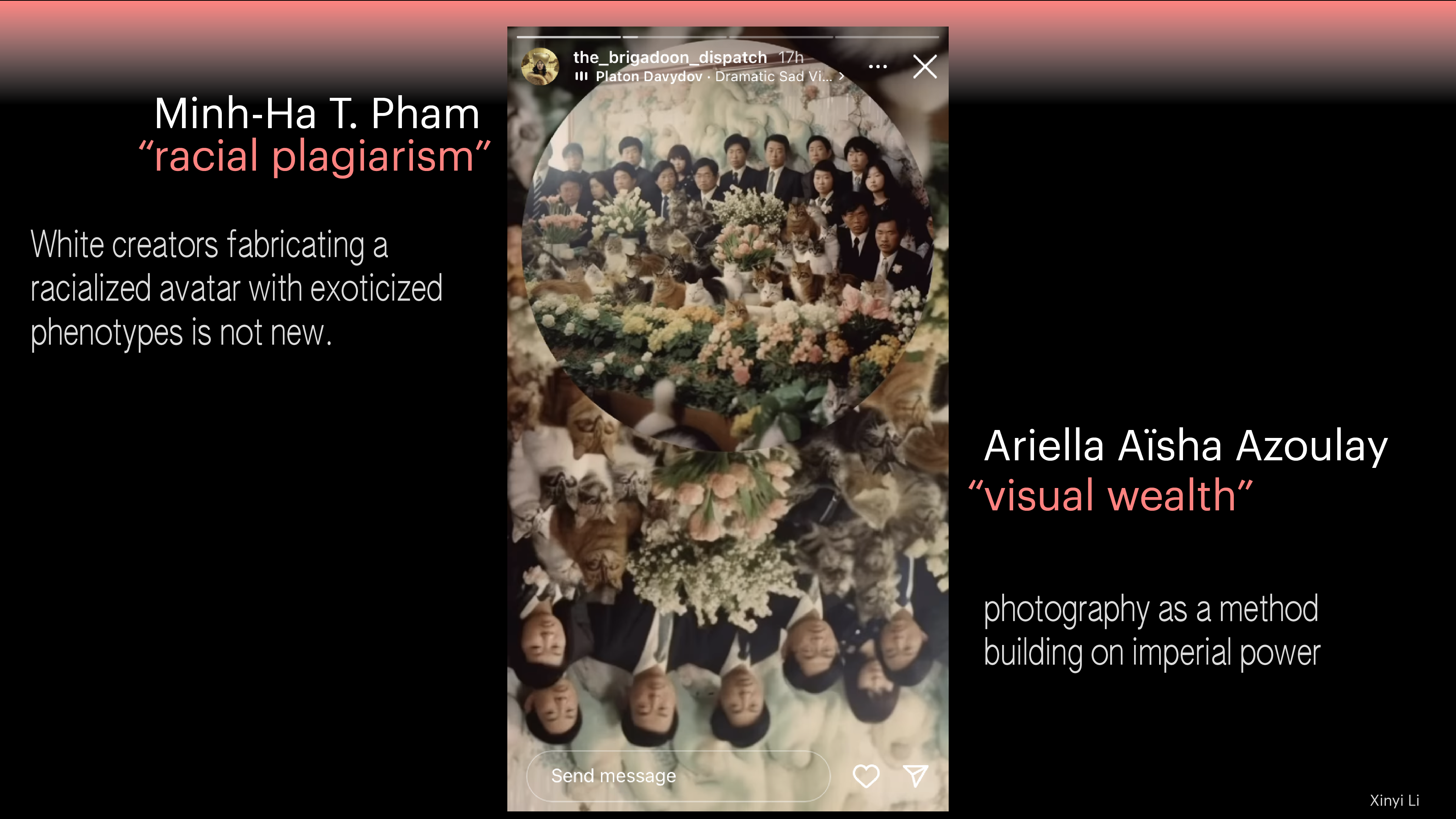
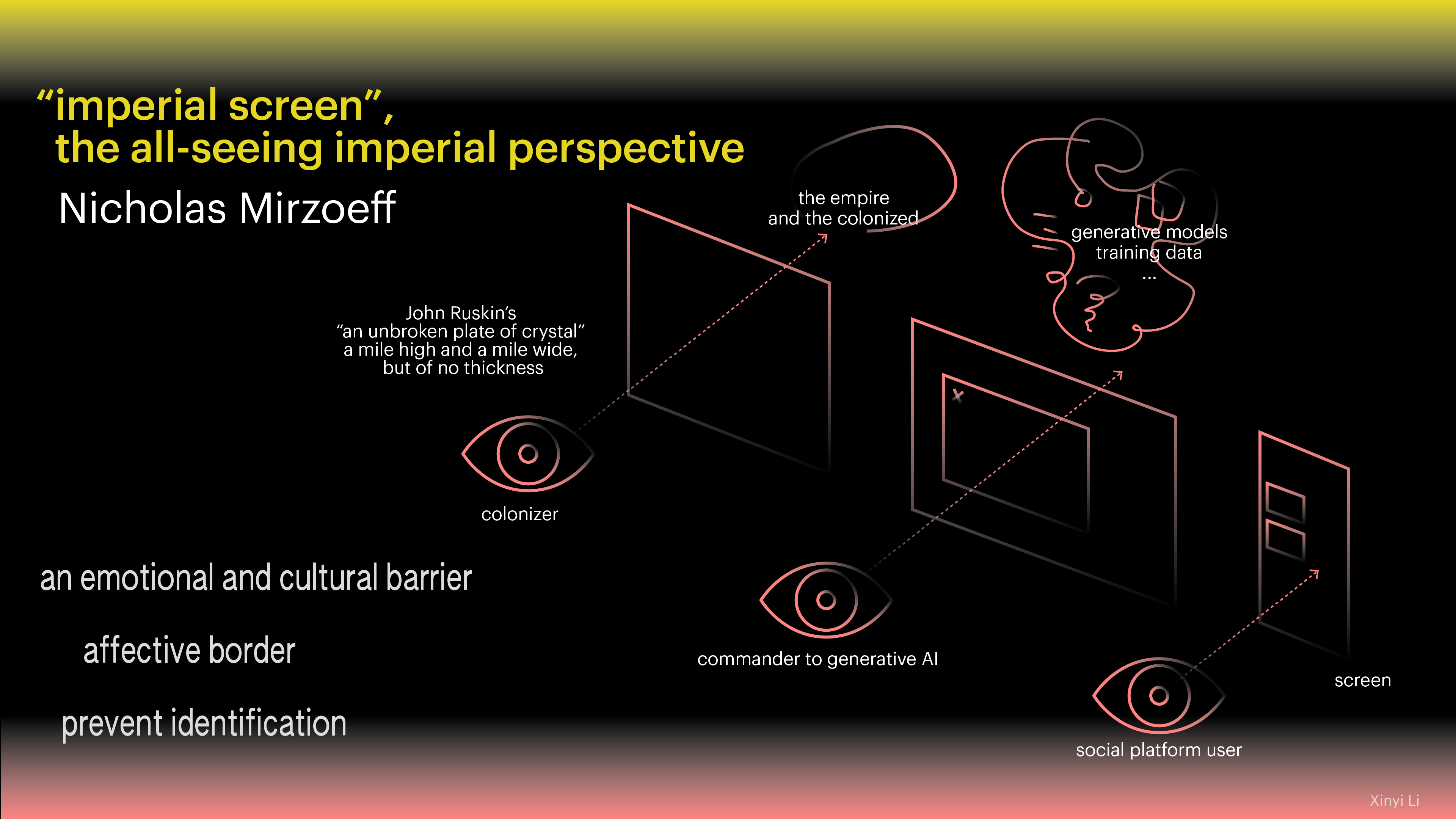
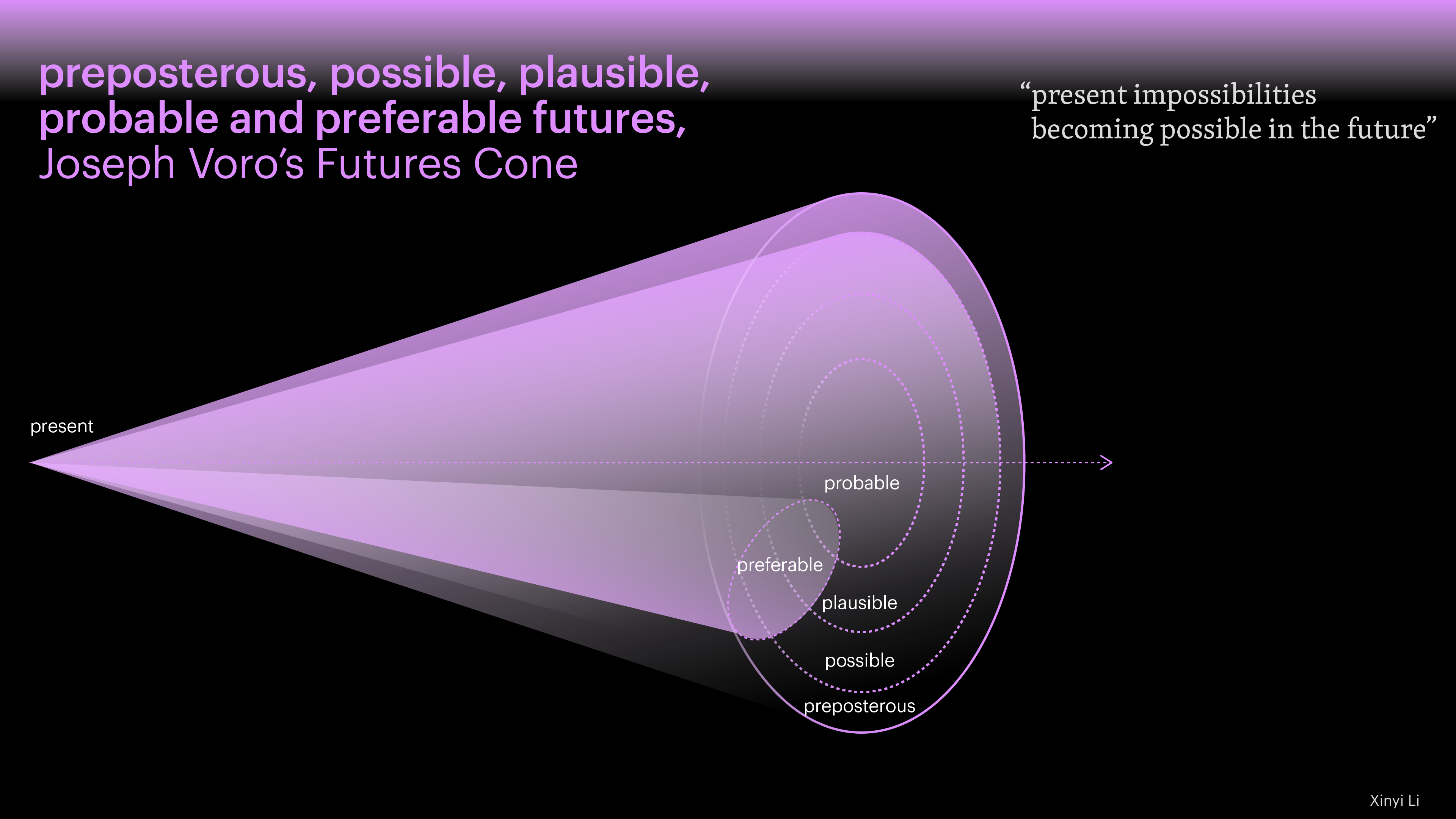
By reading three types of AI-generated projects as speculative design, this study shifts the focus from the generative model itself to the production and reception of the images.
AI-generated images are often praised for their mere existence, their aesthetic, and technical processes. Overshadowed by concerns of copyright and algorithmic bias, they tend to evade scrutiny regarding the underlying concept and human interventions. Existing literature within art and design fields often places AI as either the central subject or a tool serving creative goals. This paper approaches cases from three categories of speculative futures with varying degrees of plausibility that circulate on Instagram, a popular platform among AI content creators that has evolved from a persona-driven to a curation-driven one.
I compare the intention of transparent or anonymous authorship, and the affective engagement they evoke, and ethical implications of generating a racial other(@the_brigadoon_dispatch). I examine their relationship with reality, and how they concern past, present, and future. I question whether speculative design, amid ongoing criticisms, is at an “image turn”, flattening literary imagination to visual stimuli for consumption, furthering the ocular-centrism of contemporary media cultures, and aestheticizing the sufferings of the remote other(@snapshots_from_a_near_future).
I exemplify image anarchism with how the Great Wall covered by soft and pink inflatables by @aiforarchitects gained radical meanings through reposts on dissident pages. While narratives are not explicit, symbols of patriarchal power and mandate nationalism clashed with imaginative interpretation and connected to sites of history and precedent artistic creations as soft resistance. When the alternative worlds are by no means journalistic but still sensitive to times and responsive to reality, the images forge discourse and deep affective connections.
I conclude by connecting to mnemonic imagination’s synthesis of imagining and remembering, speculating how fiction can be used as a method to connect to others’ pasts to seed reciprocal future actions, while letting meaning to emerge through image anarchist circulation, and allowing space for imagination stemming from the tension of reality and fiction.
Li, Xinyi. “Reading AI-generated Speculative Futures in a Digital Visual Age” in Amanda Wasielewski (Chair), Panel “Ekphrasis and Artificial Intelligence: Text-to-Image Generation in Theory and Practice.” Paper presented at the College Art Association (CAA) Annual Conference, Chicago and Online, February 17, 2024.
Seeing Through Languages
Pedagogical Interventions in Transcultural and Translingual Contexts
Using language as a lens to complicate pedagogical practice, my talk questions neutrality and implicit biases in teaching and examines the sometimes unconscious submission to the hegemony of English and the enduring legacies of colonial powers.
Language is entangled with the practice of design and teaching as both an instructional medium and material to create with, but it is also burdened with various forms of supremacies. Rey Chow, in her discussion of languaging as a postcolonial experience, describes it as a “double disfigurement,” where language tone, akin to skin tone, is “a defective correction of something already deemed defective”. Speaking the language of whiteness becomes an unattainable proxy to the unattainable whiteness. I will share observations and pedagogical interventions that utilize language as a lens to decenter colonial episteme, and ways of attending to polyphony and dissonance in classrooms as sites of generative learning.
Li, Xinyi. “Seeing Through Languages: Pedagogical Interventions in Transcultural and Translingual Contexts” Paper presented at the AIGA National Conference, Design Educators Community Symposium Lens, New York, October 12th, 2023
Mapping Critique in Digital Space
2020–2022
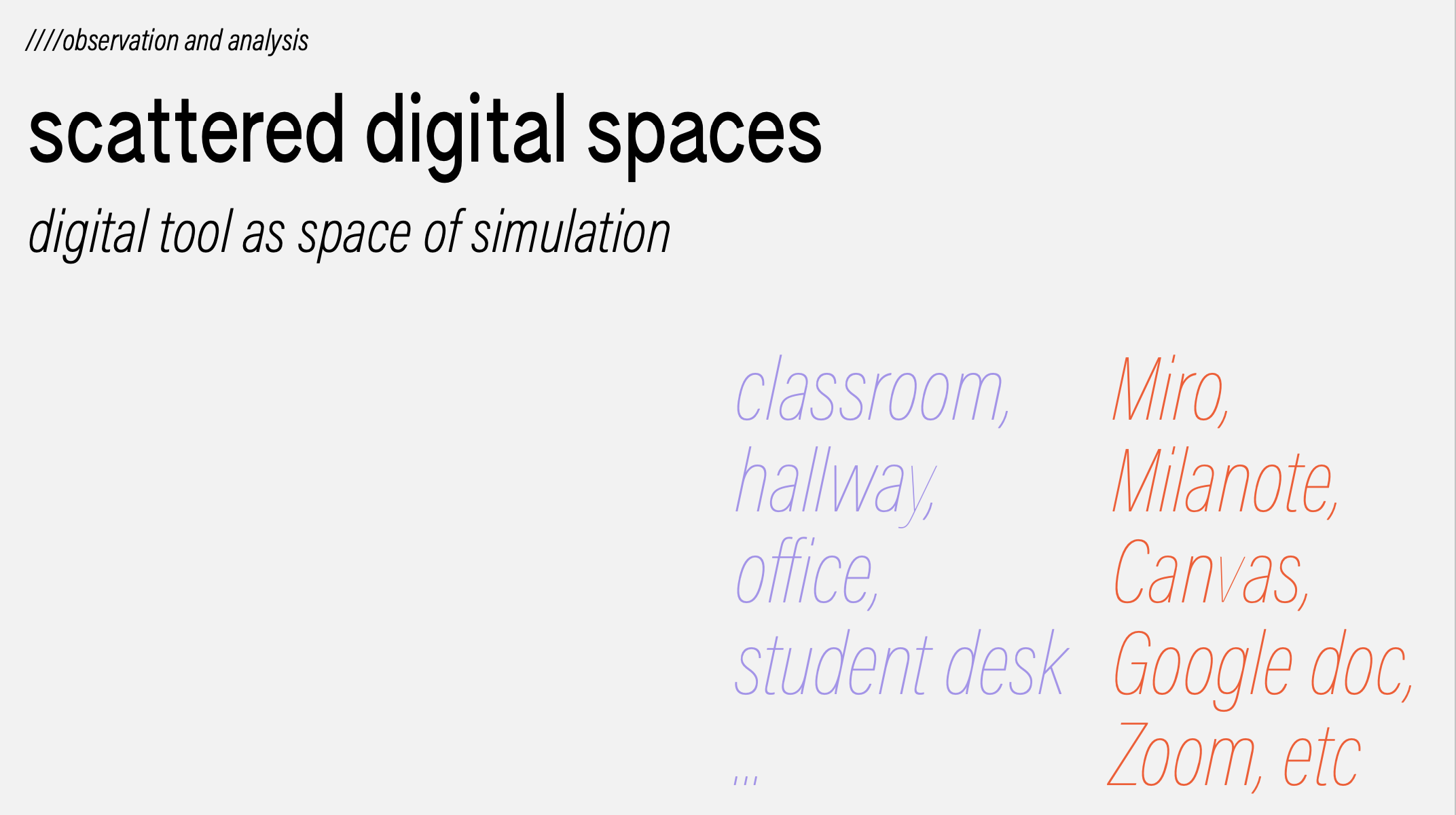
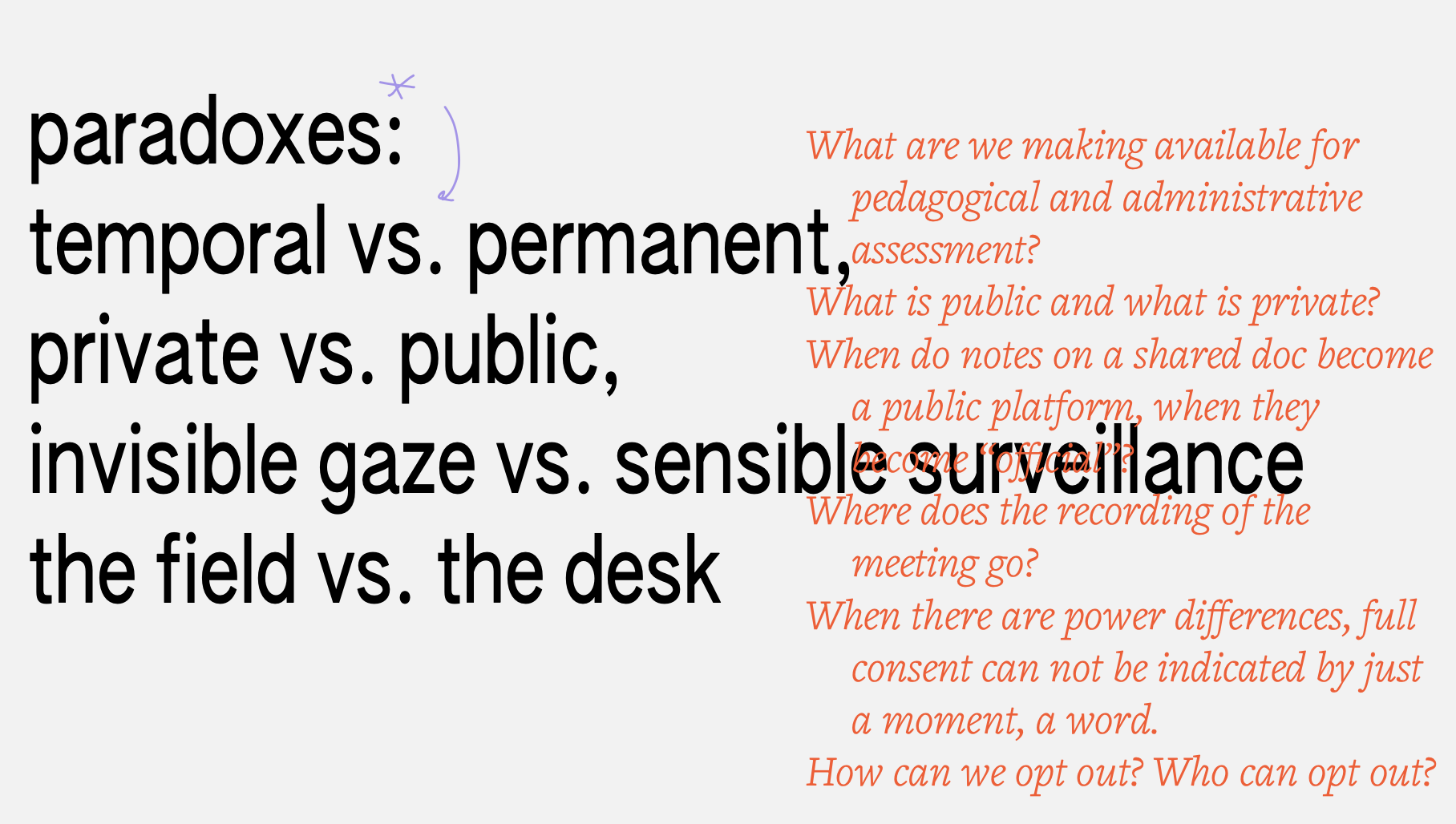
tools for questioning the implications of digital tools in the re-turned hybrid design education spaces
Derived from autoethnographic observations, this paper reflects on the possibilities, limitations, and implications of digital tools present in between digital, physical, and hybrid teaching. The mapping initiated from a period of fully remote learning and immense reliance on technological structures to share and discuss creative work. Serving not as how-tos but as tools for questioning, the map deconstructs the virtual learning environment prescribed, strategies employed, and conventions formed in digital classrooms. The project asks what conditions the choreography of teaching and learning: When the digital classroom function simultaneously as a space of simulation, space of access and communication, and documentation and representation, what are inherited from the tools and platforms, such as the idea of professionalism? How to frame critique as a social process, when educators and students are navigating the spectrum of private and public, various senses of temporalities and ownership, and issues of accommodation and consent? After returning to in-person learning for one academic year, digital space is still used as an extension of physical classrooms. Digital tools stay in pedagogical practice, and many questions remain relevant. What and how are we making visible or invisible for pedagogical and administrative assessment? What additional learning opportunities does the inclusion of digital platform creates, such as integrating platform literacy, consciousness about viewing condition and representation of work, and creative and subversive use of technology? This paper presents questions and provocations to chart a discussion on how to continue negotiating and situating pedagogical practice in relation to digital tools.
Li, Xinyi, Gaia Scagnetti. “Mapping the Critique in Digital Space” in Mid-America College Art Association panel “Digital Tools in Classroom.”Paper presented at the College Art Association (CAA) Annual Conference, Online, February 16, 2023
Li, Xinyi, Gaia Scagnetti. “Mapping the Critique in Digital Space” in Mid-America College Art Association panel “Digital Tools in Classroom.”Paper presented at the College Art Association (CAA) Annual Conference, Online, February 16, 2023
Wall, Table, Lexicon: Publishing as Rehearsal
Post-radical Pedagogy at 2022 New York Art Book Fair
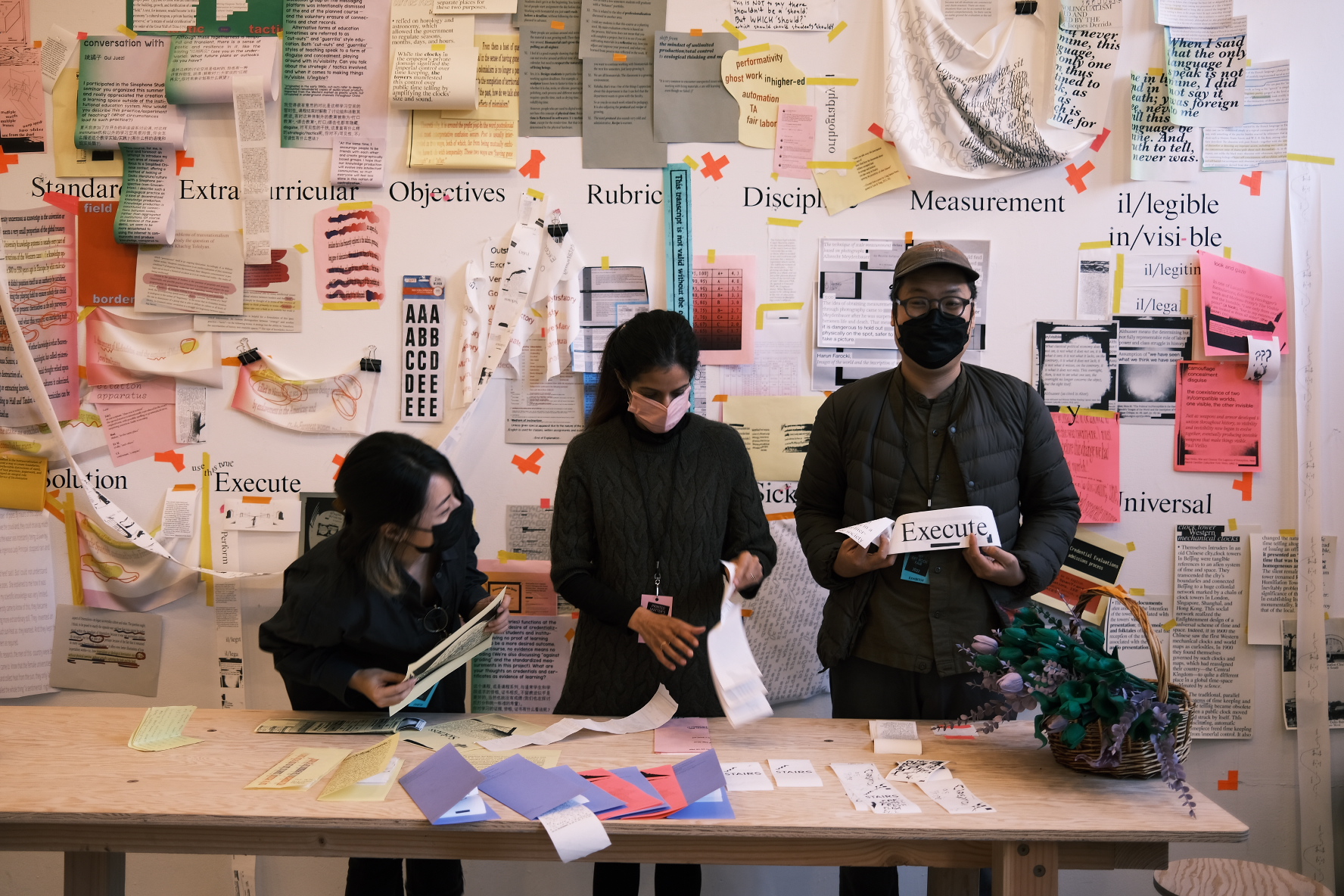
Post-Radical Pedagogy questions the design of curricular apparatus and explores alternatives to syllabi, grading rubrics, classroom conventions, and presence of authority. Reflecting on the wall with exemplification of the hostile and colonial aspects of administration in education, invited guests and passersby will generate content, which will thicken the walls as an act of on-site publishing and exhibition.
Participants can make customized publications printed and bound onsite by photographing sections/pages of the wall.
Participants can make customized publications printed and bound onsite by photographing sections/pages of the wall.
This project sapce is a collaboration between Post-Radical Pedagogy and Thick Press
Teaching Design in the Age of Platforms
A Framework for Platform Education 2020
Situateing a platform education within and beyond communication design to help develop understandings of the mechanisms of platforms, values influenced by platformization, and design implications.
︎ Read More
Li, Xinyi. “Teaching Design in the Age of Platforms: A Framework for Platform Education.” Paper presented at Cumulus Conference Design Culture(s), Sapienza University, Rome, June 9–11, 2021